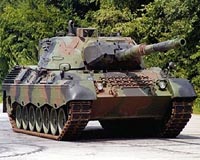| . |  |
. |
London (AFP) Nov 2, 2010 Britain and France have been forced into a new defence pact by financial pressures and the desire to remain global players, but historic tensions could still undermine the deal, analysts said. Nearly 1,000 years after the first cross-Channel clash at the Battle of Hastings, the new agreement will see the NATO neighbours share aircraft carriers and nuclear testing facilities and create a joint military force. "I would like to be optimistic about it but it's hard. There is a history of mistrust," Sheila Tremlett, an expert on Anglo-French relations at the Defence Studies Department of King's College London, told AFP. "Britain gets in close contact with France when it has to, not when it wants to." French President Nicolas Sarkozy hailed the deal signed at a summit in London Tuesday as "historic", and both he and British Prime Minister David Cameron vowed that their countries would work closely together. Experts said the driving force behind the pact was to maintain the two nations' clout on the world stage in the aftermath of the financial crisis -- with Britain in particular trying to slash a massive deficit. Commentators in Britain have dubbed the new deal the "Entente Frugale" -- a play on the famous Entente Cordiale in 1904 which brought an end to centuries of conflict between the two countries. "Quite frankly, there's no money left," Robin Niblett, head of the respected think-tank Chatham House, told AFP. Etienne de Durand, director of the Brussels-based IFRI (French Institute of International Relations) said recently it was a choice between "entente or oblivion" for Europe's only nuclear powers. But Paris and London would therefore work hard to make a success of the landmark new agreement, analysts said. "They will make it work because they have to," said Julian Lindley-French, a professor of defence studies at the Netherlands Defence Academy and special professor of strategic studies at the University of Leiden. "It's strategic, it's pragmatic, it's visionary, it's good for the transatlantic relationship and it's good for European defence," he told AFP. Britain and France cooperated extensively in the past century including the First and Second World Wars, the ill-fated Suez crisis in 1956 and Franco-British military operations in the Balkans in the 1990s. But the devil of the new agreement would be in the details, said John Keiger, an expert on French foreign, defence and security policy at the University of Salford. The two countries fell out badly over the US-led invasion of Iraq in 2003 and the new agreement could struggle if there are similar foreign policy differences in the future, he said. "It could potentially cause difficulties if Britain and France are operating a carrier together and there is some political crisis that occurs, and one of the two parties isn't in favour of intervening and the other is," Keiger told the BBC. There was also a lack of "deep-seated" intelligence sharing between the two countries of the kind that Britain currently has with the United States, Canada, Australia and New Zealand, he said. This could create difficulties if, for example, the French wanted intelligence information that US officials had not cleared for sharing. Michael Clarke, director of the Royal United Services Institute in London, said previous attempts at military and industrial cooperation between Britain and France "always seem to run out of steam." "This time it might be different because they are desperate (about money)," he told the BBC. "They always work at a political level. They create some useful synergies." British newspapers, however, did not hide their scepticism. The right-leaning Daily Mail borrowed a quote from General Norman Schwarzkopf, commander of coalition forces in the 1991 Gulf War, who joked that "going to war without the French is like going duck shooting without an accordion."
Share This Article With Planet Earth
Related Links The Military Industrial Complex at SpaceWar.com Learn about the Superpowers of the 21st Century at SpaceWar.com
 Saudis discuss buying tanks from Spain, no deal signed
Saudis discuss buying tanks from Spain, no deal signedMadrid (AFP) Nov 2, 2010 A senior Saudi Arabian official discussed buying Spain's Leopard 2E tanks here Tuesday but no deal was signed for a contract reportedly worth up to three billion euros, a Spanish government official said. Visiting Prince Khaled bin Sultan, the Saudi assistant defence minister, discussed the possible contract in a meeting with Prime Minister Jose Luis Rodriguez Zapatero, the official told AFP ... read more |
|
| The content herein, unless otherwise known to be public domain, are Copyright 1995-2010 - SpaceDaily. AFP and UPI Wire Stories are copyright Agence France-Presse and United Press International. ESA Portal Reports are copyright European Space Agency. All NASA sourced material is public domain. Additional copyrights may apply in whole or part to other bona fide parties. Advertising does not imply endorsement,agreement or approval of any opinions, statements or information provided by SpaceDaily on any Web page published or hosted by SpaceDaily. Privacy Statement |